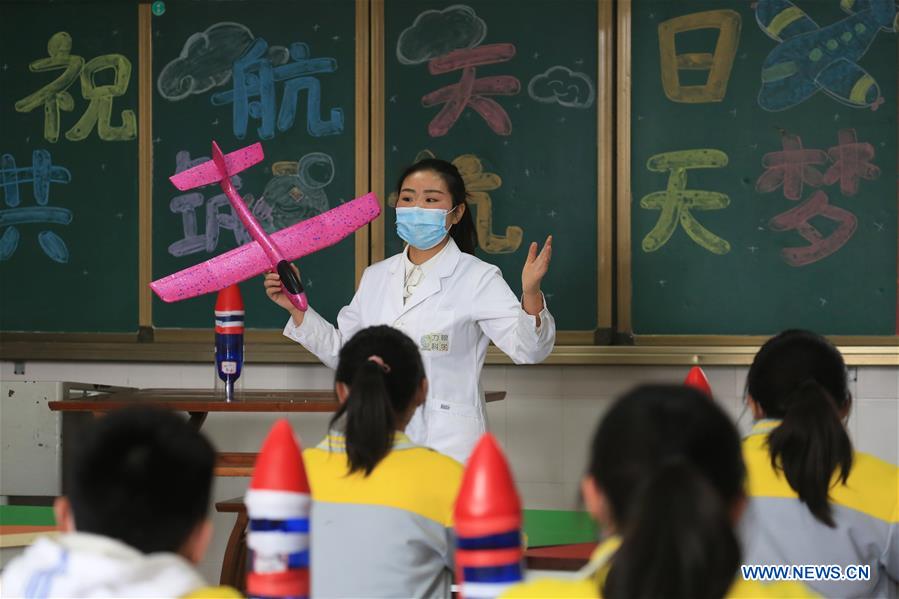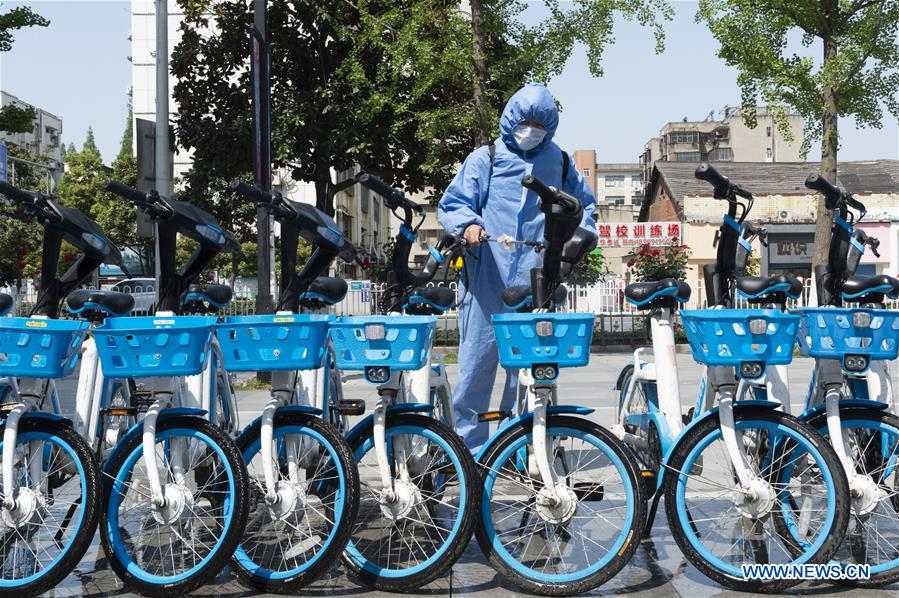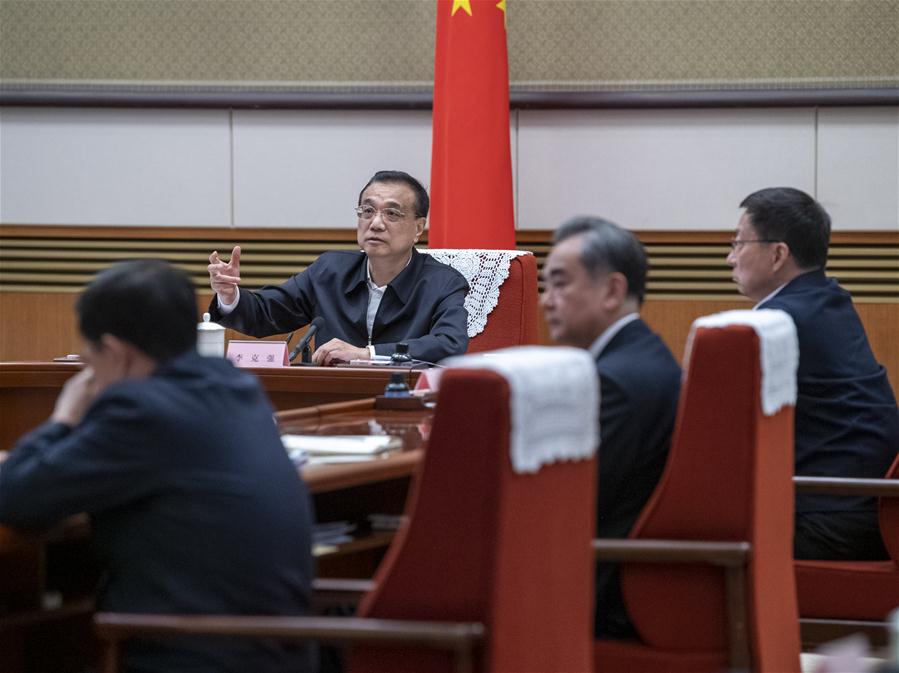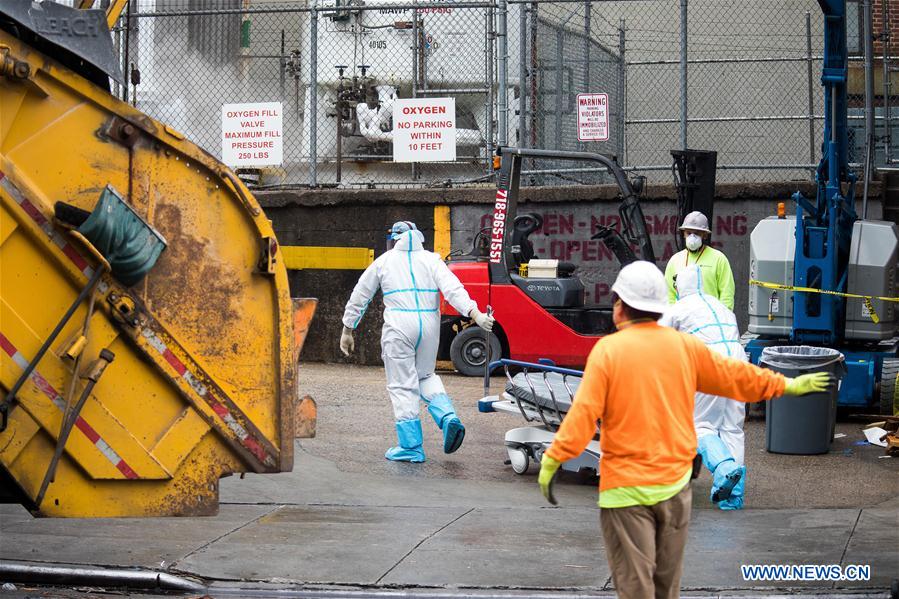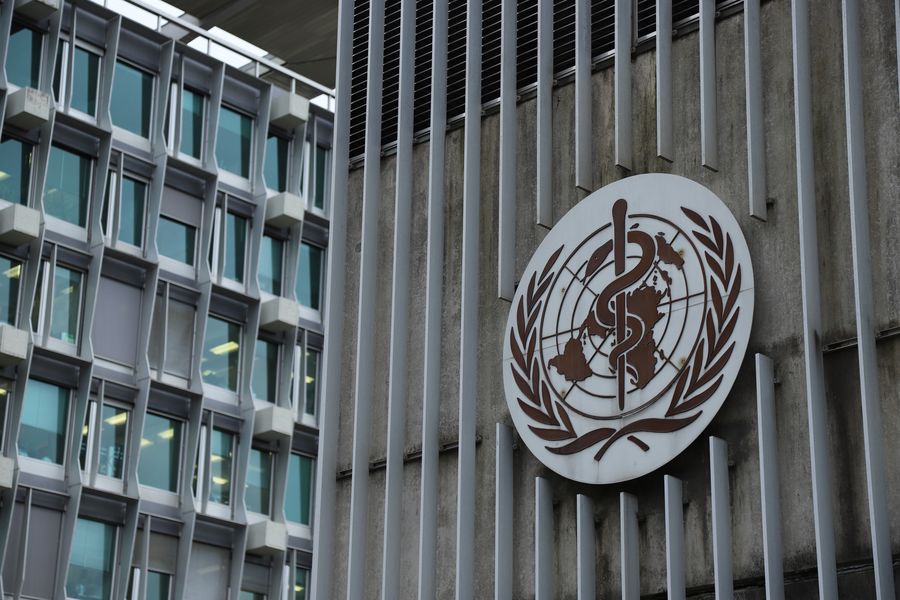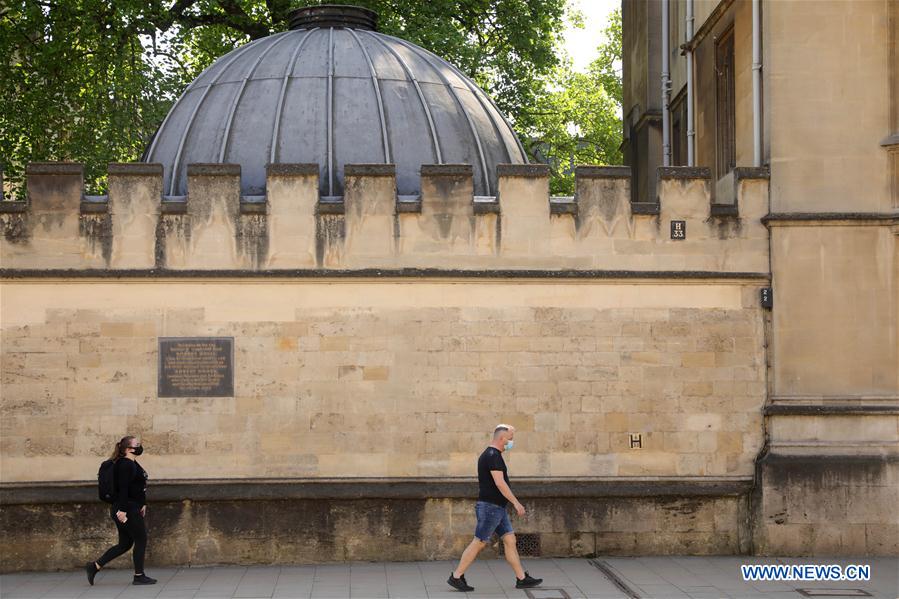
People wearing face masks walk in Oxford, Britain, April 24, 2020. A team at the University of Oxford is starting a coronavirus vaccine trial on humans Thursday. The team started work on developing the vaccine to prevent COVID-19 on Jan. 20, 2020. (Photo by Tim Ireland/Xinhua)
by Xinhua writer Zhang Jiawei
LONDON, April 24 -- After implementing social distancing measures for weeks, Britain has hit "the peak" of the COVID-19 outbreak, according to the country's Health Secretary Matt Hancock. But medical experts said only a valid vaccine or highly effective drugs can give people assurance that the fight against COVID-19 could be finally won.
That is why the vaccine trial carried out by a team at the University of Oxford is drawing much attention. The process is moving at a rapid pace -- Oxford researchers have begun vaccine trials on humans on Thursday.
UK EFFORTS
The vaccine programs respectively at Oxford and the Imperial College London are at the forefront of Britain's vaccine development efforts. The British government has announced that it will provide funding for these two programs.
According to a statement from the University of Oxford, the new vaccine, called ChAdOx1 nCoV-19, is based on an adenovirus vaccine vector and the SARS-CoV-2 spike protein, and has been produced in Oxford.
The researchers started screening healthy volunteers (aged 18-55) in March, and the study will test the new vaccine against COVID-19 in these volunteers.
It aims to assess whether healthy people can be protected from COVID-19 with this new vaccine while providing valuable information on safety aspects of the vaccine and its ability to generate good immune responses against the virus, according to the statement.
"The best-case scenario is that by the autumn of 2020 we have the results about the effectiveness of the vaccine from a phase III trial and the ability to manufacture large amounts of the vaccine," professor Sarah Gilbert from the University of Oxford told Xinhua through email.
"But these best-case timeframes are highly ambitious and subject to change," said professor Gilbert, who is one of the scientists leading the COVID-19 vaccine development program at Oxford.
CHALLENGES AHEAD
As of Thursday afternoon, another 684 people who tested positive for COVID-19 have died in hospitals in Britain, bringing the total number of coronavirus-related hospital deaths to 19,506.
Under normal circumstances, most vaccine development programs take more than five years. But the Oxford team said they have used some special strategies to expedite the process significantly, including a vaccine delivery system that has been used before and can be adapted for a new pathogen, which can shorten the initial vaccine development time.
Also, in an emergency situation, large scale manufacturing could be carried out concurrently while the clinical trial is ongoing, which can shorten the overall timescale for vaccine development, according to the team.
Finally, regulatory review of promising candidates is also expected to be undertaken faster in an epidemic, because more staff and resources are dedicated to the review process.
Still developing a new vaccine is a challenging task, especially for the novel coronavirus. Researchers need to assess the safety and efficacy of the vaccine through phase I, II and III clinical trials. If the vaccine is safe and efficacious, regulatory approval is needed before the vaccine can be deployed.
"The first problem is that there are no licensed vaccines for any of the coronaviruses that affect humans so it is not clear how strong the immune response after vaccination will need to be to give a good level of protection," professor Gilbert said.
"We won't know that until vaccine efficacy trials have been completed. Apart from that, raising the funding is very time-consuming. There is no problem in recruiting enough trial subjects. We have had a huge response to our request for volunteers," she also said.
INTERNATIONAL COLLABORATION
To combat the ongoing pandemic, multiple teams around the world are developing COVID-19 vaccines.
The Coalition for Epidemic Preparedness Innovations (CEPI) said that it has initiated eight COVID-19 vaccine development programs with leading universities, institutes and biotechnology companies from across the world.
The Oxford vaccine will be the third CEPI-funded vaccine to enter into phase I trials, along with Inovio's INO-4800 DNA vaccine candidate and Moderna's mRNA-1273 candidate, according to the CEPI headquartered in Norway.
Experts have emphasized the importance of collaboration and coordination when it comes to vaccine development, so that resources can be used more efficiently in the face of a global emergency.
"On every aspect of this pandemic and responses, there is an absolute need for coordination within nations among different parts of government, and then between nations, between different governments," Dr David Nabarro, chair of Global Health at the Imperial College London, told Xinhua.
Dr Nabarro was appointed as a special envoy on COVID-19 of the World Health Organization Director-General in February.
Collaboration between countries has already paved the way for more efficient vaccine development.
"We have already benefited from Chinese scientists making the viral sequence (of the novel coronavirus) available online, this has helped us and others with designing vaccine candidates. We are in touch with some Chinese researchers and clinicians and hope to build deeper collaborative efforts," professor Robin Shattock, who is leading the COVID-19 vaccine program at Imperial College London, told Xinhua in a previous interview.
"There is a lot of collaboration and coordination, I think we have learned what was successful from the previous outbreaks and this has enabled better practice and faster progress," said professor Shattock.

